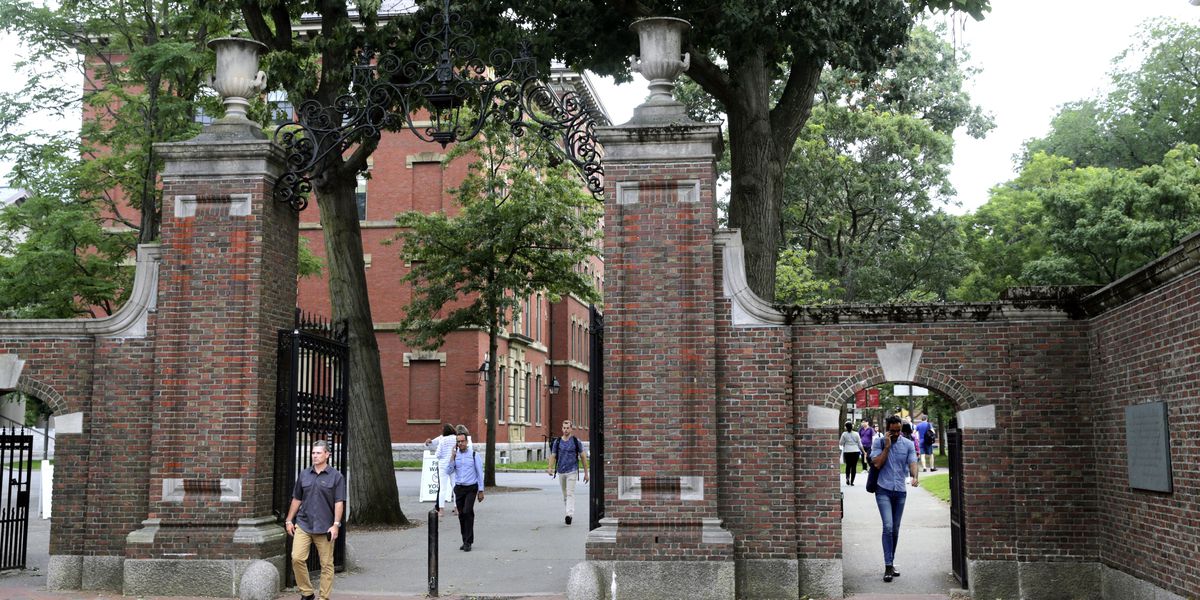17 states and Washington DC sue Trump administration over visa rule for international students

A few minutes every morning is all you need.
Stay up to date on the world's Headlines and Human Stories. It's fun, it's factual, it's fluff-free.
On Monday, attorneys general in 17 states and the District of Columbia filed a lawsuit against the United States Department of Homeland security (DHS) and the Immigration and Customs Enforcement (ICE) in the United States District Court in Massachusetts.
The lawsuit challenges ICE’s new rule that forbids international students from taking online-only courses in the upcoming fall semester. It also seeks to suspend the rule before any decision is made by the court on its validity.
On July 6, the ICE announced that international students enrolled in colleges offering online-only courses in the upcoming fall semester will have to leave the US in accordance with the nation’s existing visa guidelines.
The ICE had temporarily suspended the visa rules in March due to the COVID-19 pandemic, allowing international students to continue their education online as many universities across the nation closed down their campuses.
The July 6 rule reverses the March suspension.
The lawsuit is headed by Massachusetts Attorney General Maura Healey and supported largely by Democrats. Attorney Healey said of ICE’s rule in a statement, “The Trump Administration didn’t even attempt to explain the basis for this senseless rule, which forces schools to choose between keeping their international students enrolled and protecting the health and safety of their campuses."
The lawsuit argues that the ICE’s July 6 rule violates the Administrative Procedures Act (APA) as the Trump administration “failed to offer a reasoned explanation for its action", adding that universities were not given sufficient time to adapt to the new rule.
It also alleges that the rule imposes “harm and extreme burdens” on colleges and universities. Many universities will have to ensure that international students have the option of in-person classes available in fall, a move that will have a grave impact on the universities’ COVID-19 control measures.
“Coercing schools into holding more in-person classes in the fall–regardless of the schools’ assessment of the health and safety risks of doing so–harms the Plaintiff States’ ability to regulate their institutions and protect the public."
“The alternative is to lose significant numbers of students from their campuses”, the lawsuit states.
The lawsuit also suggests that the new rule is motivated by the Trump administration’s goal of forcing schools and universities to reopen in the fall, even if it is to the detriment of student safety.
It cites Trump’s July 7 tweet as an example:
The Trump administration has responded to the lawsuit in its own court briefings on Monday, stating that ICE’s new requirements may not be liked by the universities but they aren’t against the law. The administration also said that foreign students, if allowed to remain in the US while not studying at universities in person, would pose a national security concern.
“A solely online program of study provides a nonimmigrant student with enormous flexibility to be present anywhere in the United States for up to an entire academic term, whether that location has been reported to the government, which raises significant national security concerns.”
According to the lawsuit, there are a total of 1,124 colleges and universities in 17 states and DC represented by the plaintiffs. Approximately 373,000 students were enrolled in these institutions, contributing an estimated US$14 billion to the economy in 2019.
On July 8, Harvard University and Massachusetts Institute of Technology (MIT) filed the first lawsuit challenging ICE’s new rule in the District Court in Massachusetts. Both universities have planned mostly online classes for students in the upcoming fall semester.
More than 200 universities have signed the court briefings in support of the lawsuit.
The Harvard and MIT lawsuit also alleges that the Trump administration has violated the APA. It argues that the Trump administration’s declaration of emergency in March due to the pandemic is still in effect, meaning ICE’s March waiver of online learning restrictions should similarly remain in place.
It also points to the fact that COVID-19 cases are higher than they were in March.
A judge will hear arguments in relation to the lawsuit brought by Harvard and MIT on Tuesday afternoon. If the judge does not rule for suspension of ICE’s new policy, in accordance with the department’s policy, universities will have to notify ICE on Wednesday if they plan to hold online-only classes in the fall.
Have a tip or story? Get in touch with our reporters at tips@themilsource.com




Comments ()